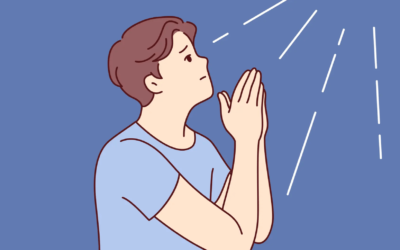Withdrawal of Cases: Civil and Criminal Case withdrawal in Bangladesh
What exactly is the problem?
Issues arise when you consider withdrawing from representing a defendant or accepting a transferred case near or during the trial.
Once the criminal trial process begins, you have professional obligations to both the defendant(s) for whom you act and the court.
Reasons for withdrawal
If there are compelling reasons, you may withdraw from representing a client in a criminal case, whether during the trial or during the preparation for trial.
Who decides whether compelling reasons exist?
You must determine if there are compelling reasons to withdraw.

The court in R v Ulcay agreed with Rose LJ’s observations in R v G and B, saying at paragraph 14: “We think it right, both in principle and pragmatically, that whether a solicitor or barrister can properly continue to act is a matter for him or her, not the court, although of course the court can properly make observations on the matter.”
At paragraph 30 of R v Ulcay, Judge LJ stated: “The principle… remains clear.” The court cannot compel a lawyer to continue acting after he has made a professional decision that he must withdraw from the case for compelling reasons.”
What are the compelling arguments?
You must withdraw from a case if you believe that continuing to act will cause you professional embarrassment, in accordance with the Principles and Code of Conduct for Solicitors in the SRA Standards and Regulations 2019, and the professional obligations you owe to your client and/or the court.
This is to avoid violating the code and also to avoid court punishment, such as a wasted costs order or, in more serious cases, prosecution for an offense against public justice.
Exemplifications of compelling reasons
Client obligations
A conflict of interest may arise if you represent two defendants.
You must withdraw from at least one client if this occurs. Continuing to act would be a violation of SRA Code on conflicts of interest.
You must withdraw from both clients if continuing to act for the remaining client would breach your duty of confidentiality to your former client in violation of SRA on confidentiality and disclosure.
Judicial obligations
If a client changes instructions in such a way that continuing would involve you misleading the court, you must withdraw from the case, according to paragraph 1.4 of the SRA Code of Conduct.
Can a law suit/case be withdrawn after it has been filed? (both civil and criminal)
Criminal Proceedings
Criminal cases are classified into two types: CR and GR.
GR cases are typically reported to the police. The criminal court must hear the CR case.
In the GR case, public prosecutors (PPs) are appointed by the state to represent the plaintiffs. In CR cases, the complainant must appoint a lawyer to handle the case.

A case may be withdrawn due to a lack of sufficient evidence or a compromise between the parties to the case. In the criminal procedure, there are two types of provisions for case withdrawal.
In cases where the state is a party to the GR case, the public prosecutor may request that the case be dismissed under Section 494 of the Criminal Procedure Code.
Section 247 of the Criminal Procedure Code allows the complainant or a lawyer appointed on his behalf to request the withdrawal of a CR case.
The public prosecutor has withdrawn the case.
Section 494 of the Code of Criminal Procedure states that a state prosecutor or public prosecutor may withdraw from the prosecution of a person in any one or more of the offenses for which he is generally being tried with the permission of a court. The government, as plaintiff, will persuade the court that it is appropriate to withdraw from handling the case.
The court will not grant permission based solely on an order from the government to withdraw from the case.
In withdrawing the case under Section 494, the court has been asked to consider a number of issues.
Case of Complaint Withdrawal (CR Cases)
According to Section 247 of the Criminal Procedure Code, if the plaintiff can convince the magistrate that there is sufficient reason to allow him to withdraw the complaint before the case’s final order, the magistrate will allow him to withdraw the complaint and acquit the accused.
This section only applies to disposable cases, as defined in Criminal Procedure Code Section 345. Under this section, the complainant may withdraw the complaint.
For example, only the public prosecutor may file a request for the case to be withdrawn. The case cannot be withdrawn on the petitioner’s or the accused’s request, or by any order of the government.
Second, the prosecutor must explain to the court why the case is being withdrawn. The court will not dismiss the case solely on the basis of the government’s decision.
The court’s decision to dismiss the case is final. As a result, if the court is not satisfied with the reason for the withdrawal, it will order the case to be heard without allowing the withdrawal.
If the victim, plaintiff, or plaintiff in the case believes that the state voluntarily withdrawn their case, they may file a revision in the Sessions Judge Court or the High Court Division.
Case of Civil suit is being withdrawn:
The plaintiff may withdraw the case against all or any of the defendants at any time after the civil suit has been filed, according to Rule 1 of Rule 23 of the Civil Procedure Code, or give up part of the claim.

When the court is satisfied that the lawsuit is doomed to fail due to a procedural error and there is sufficient reason to allow the plaintiff to sue again for the content of the lawsuit or a portion of a claim, the court withdraws the plaintiff’s suit on appropriate terms or in part.
You may grant permission to dismiss the claim and re-litigation of the lawsuit’s or similar partial claim’s content.
If the plaintiff withdraws the lawsuit or abandons the partial claim without the court’s permission, the plaintiff is liable for the costs of the lawsuit as determined by the court and loses the right to file a new lawsuit on that content or partial claim.
A court may not allow one of the few plaintiffs to withdraw the suit without the consent of the other plaintiffs under this rule.
The same matter cannot be sued again after the withdrawal.
If a case is withdrawn in accordance with the prescribed procedure, it cannot be re-filed. In civil cases, such cases are barred by the ‘Res Judicata’ or Dobara policy, and in criminal cases by the ‘Double Geopardy’ or Dobara punishment policy. If the court is satisfied by filing a revision in a higher court, the court may order reconsideration or re-investigation in the interest of justice.
Example of Res Judicata
‘A’ sued ‘B’ for failure to pay rent. ‘B’ requested that the rent be reduced because the land’s area was less than that specified in the lease. The Court determined that the area was larger than indicated in the lease. The area was excessive, and the res judicata principles will not be applied.
In one case, ‘A’ new lawsuit was filed, and the defendants requested that the Court dismiss the lawsuit with a plea of res judicata.
She was barred from bringing a res judicata claim because her previous claim had been dismissed for fraud. The Court stated that the res judicata defense must be proven through evidence.
The Res Judicata principle
The principle of res judicata seeks to promote fair administration of justice and honesty, as well as to prevent abuse of the law.
When a litigant attempts to file a subsequent lawsuit on the same matter after receiving a judgment in a previous case involving the same parties, the principle of res judicata applies.
This applies not only to the specific claims made in the first case, but also to claims that could have been made during the same case in many jurisdictions.
Under the inherent power of the High Court Division, such an order could be made.
Hire the best litigation law firm in Bangladesh for your civil or criminal proceedings:
Tahmidur Rahman Remura Wahid is one of Bangladesh’s most experienced law firms, representing the world’s largest business houses and collaborating with the world’s largest international law firms.
With top-ranked transactional capabilities and a strong litigation practice, the firm is regarded as one of the region’s best chambers of advocates, barristers, and solicitors.
The law firm has extensive experience in M&A, Project Finance, PPP and Infrastructure Project Development, Intellectual Property, Tax, and Employment.
The firm’s litigation practice has a track record of dealing with various types of disputes. Businesses’ enforcement and litigation concerns grow as they pursue strategies.
Many clients consider enforcement and litigation to be forms of risk management. It is particularly skilled at handling complex, multi-faceted cases involving multiple claims and parties.The firm represents clients in some of the most important and high-profile cases, particularly in intellectual property, construction, banking, and energy.
The firm has a successful track record in constitutional petitions challenging the actions of administrative and regulatory authorities as well as the enforcement of government contracts. It also has extensive experience in judicial review of governmental administrative decisions.
GLOBAL OFFICES:
DHAKA: House 410, ROAD 29, Mohakhali DOHS
DUBAI: Rolex Building, L-12 Sheikh Zayed Road
LONDON: 1156, St Giles Avenue, Dagenham
Email Addresses:
info@trfirm.com
info@tahmidur.com
info@tahmidurrahman.com
24/7 Contact Numbers, Even During Holidays:
+8801708000660
+8801847220062
+8801708080817



